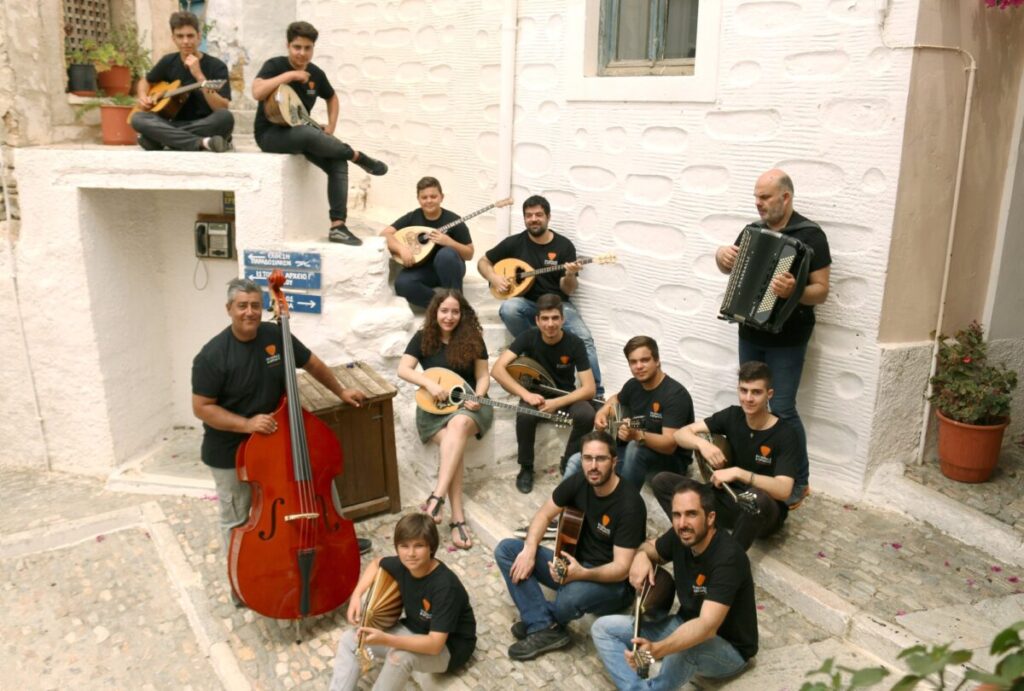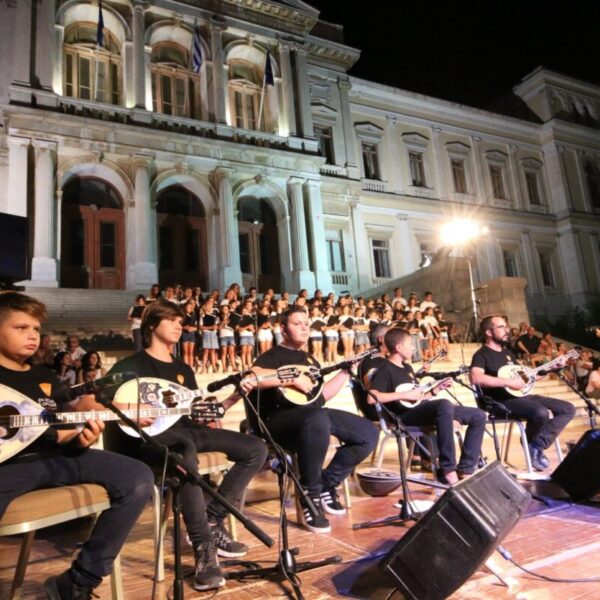Recognized by UNESCO as an intangible cultural heritage of humanity, rebetiko is the most emblematic urban music of modern Greece. Born in the poor neighborhoods of cities, its roots draw from the musical traditions of the East, primarily in Smyrna and Constantinople. From taverns to grand stages, it has retained its authenticity and remains the expression of the soul, the people, and urban life of the 20th century. In Syros, the birthplace of its patriarch Marcos Vamvakaris, teachers and young musicians fear that this rebellious song may fade away due to a lack of stages, in the face of the dominance of screens and standardized music.
It was at the end of the 19th century, in the aman cafés*, that the Smyrna style flourished with instruments such as the santouri, violin, kanonaki, and oud. There, a multicultural musical tradition formed, combining Greek folk song, amanés** and Ottoman melodies. With the Great Catastrophe in 1922 and the arrival of refugees in Greece, this musical genre migrated and encountered the world of Piraeus, where bouzoukis and baglamas were already present. In contact with the great Athenian port, rebetiko took its final form and evolved into a distinct musical genre.
The Voice of the Marginalized
During the interwar period, this song established itself as the expression of the excluded: the poor, prisoners, and workers in struggle. Its themes spoke of love, misery, drugs, and solitude. Marcos Vamvakaris, a native of Syros, became the "patriarch of rebetiko" with his bouzouki and lyrics rooted in the life of Piraeus.
During the Occupation, it served as a song of comfort and resistance. After 1945, it refined under the influence of composers like Vasilis Tsitsanis, Giannis Papaioannou, and Manolis Chiotis, who brought it closer to the general public. However, the arrival of light music in the 1960s marginalized it. Ten years later, researchers and musicians revived its flame through old recordings and new interpretations.
A Living Heritage in Syros
In Syros, the birthplace of Vamvakaris, the school "En Cordes & Instruments," founded in 2016 under the aegis of Stavros Xarchakos, still teaches rebetiko. In a building from 1830, Aristos Vamvakousis trains students of all ages in this demanding art.
But enthusiasm is waning. "Since the coronavirus, interest has declined. Students learn but have no stage. Venues are lacking everywhere, except in Skopelos where the tradition remains alive," he confides. He recalls his childhood, fascinated by the rebetes and his beginnings with the bouzouki. "In the 70s and 80s, the situation was better. Then, the bars of Athens imposed recorded music. Syros followed. This tradition has been lost. A few enthusiasts exist, but they have no space to perform."
The Youth in Search of Meaning
Nikos, 18, has been learning the bouzouki since he was 8 years old. Raised between Syros and Crete, he has already played at the Megaron in Athens and the Apollo Theater in Syros. For him, music is instinctive. "When I feel something, I play. My soul speaks through the bouzouki."
He regrets that the image of rebetiko is often misrepresented. "You see cocktail bars displaying Marcos Vamvakaris on their walls, but without any relation to the spirit of this music. They forget its philosophy, its way of expressing love, pain, or joy."
Aristos Vamvakousis also points out the impact of screens: "Children no longer have the patience to listen to a whole song. They are used to videos of a few seconds. Generations are changing at a dizzying speed. I fear that rebetiko will become a museum genre."
Thus, this song born from the margins and carried by the memory of refugees continues to survive, fragile but tenacious, between living heritage and the threat of oblivion.
* The aman cafés are the places where this music developed. Their name comes from the word "aman," a plaintive interjection often found in Eastern songs to express pain, desire, or supplication.
** The amanés are one of the musical genres performed in these cafés and integrated into the Greek popular repertoire.

Photo of the day: The students of Aristos Vamvakousis play in front of the neoclassical municipality of Hermoupolis, the capital of the island of Syros © En Cordes & Instruments
